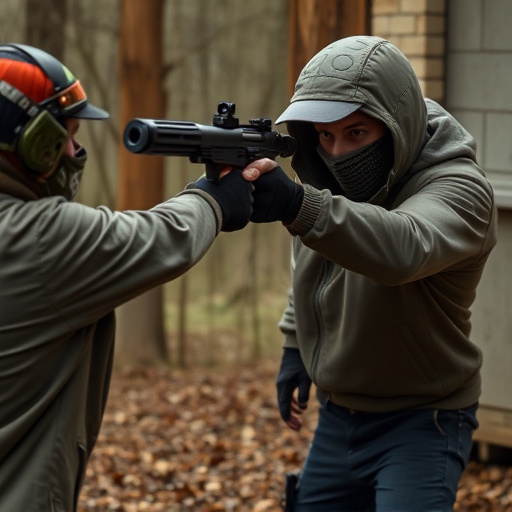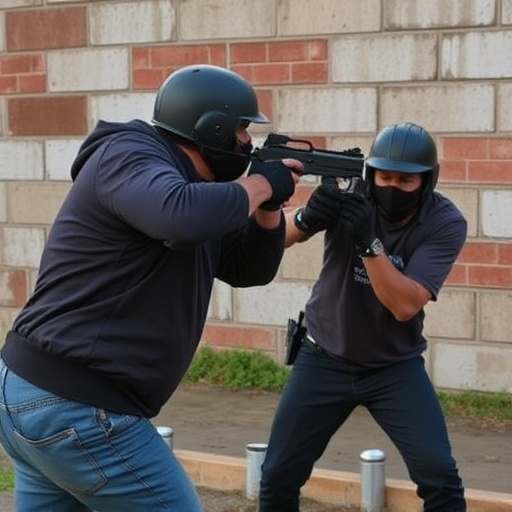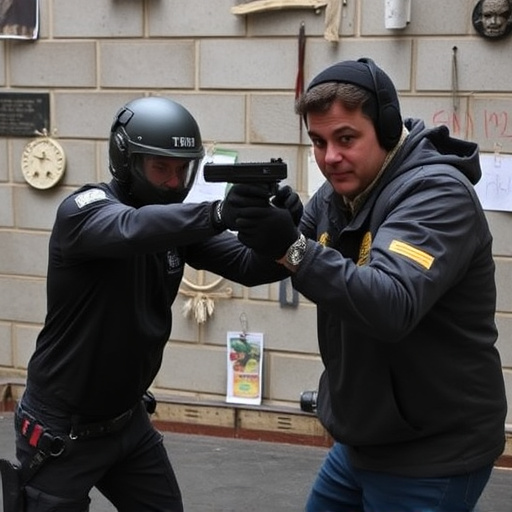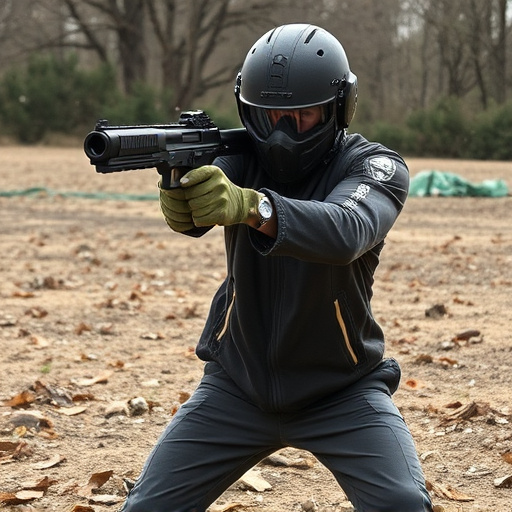Understanding local regulations is crucial before acquiring heavy-duty stun batons for personal security, as laws vary widely by region. Requirements often include background checks, permits, and training certifications. Compliance ensures legal safety while empowering individuals to make informed decisions about their protection using these powerful tools, available in various designs catering to specific security needs.
“In today’s world, personal safety is a top priority. Understanding concealed carry regulations, especially for heavy-duty stun batons, is an essential step towards empowering yourself. This comprehensive guide delves into the intricacies of concealed carry laws and explores the role of robust stun batons in enhancing personal security.
We’ll navigate legal considerations, dissect key features, and provide insights on choosing the right device while adhering to local regulations. Whether you’re a concerned citizen or an advocate for self-defense, this article offers valuable information on heavy-duty stun batons for security.”
- Understanding Concealed Carry Laws: A Comprehensive Overview
- The Role of Heavy-Duty Stun Batons in Personal Security
- Legal Considerations and Regulations for Stun Gun Ownership
- Choosing the Right Stun Baton: Features and Compliance with Local Laws
Understanding Concealed Carry Laws: A Comprehensive Overview

In many regions, laws surrounding concealed carry of stun guns vary greatly depending on local and state regulations. Understanding these rules is paramount for anyone considering carrying a heavy-duty stun baton for personal security. The first step involves researching specific laws in your area, as some jurisdictions have strict limitations on who can possess such devices and under what circumstances. Requirements often include background checks, permit applications, and training certifications to ensure responsible ownership.
Knowing the legal framework is crucial when it comes to purchasing and carrying a stun gun. Each region has its own set of rules regarding size, power output, and permissible locations for concealed carry. Some areas might allow stun guns only for specific purposes, such as self-defense or security in remote locations, while others may have more permissive guidelines. Staying informed about these regulations not only helps ensure compliance but also empowers individuals to make informed decisions regarding their safety and the tools they choose to protect themselves with, including heavy-duty stun batons.
The Role of Heavy-Duty Stun Batons in Personal Security

Heavy-duty stun batons have emerged as a significant tool in personal security, offering an effective and readily available defense mechanism for individuals seeking to protect themselves in various situations. These stun devices are designed to deliver powerful electric shocks, temporarily incapacitating an assailant and providing precious time for escape or assistance. The robust construction of heavy-duty stun batons ensures they can withstand rigorous use, making them a reliable option for those in high-risk environments.
Whether for personal protection or as a deterrent against potential threats, heavy-duty stun batons are increasingly recognized as valuable assets. Their compact size and ease of carry allow users to stay prepared without compromising mobility, while the high-voltage output provides a strong deterrent against aggressive assailants. As with any self-defense tool, proper training and understanding of local regulations regarding concealed carry are essential for responsible use.
Legal Considerations and Regulations for Stun Gun Ownership

In many regions, owning a stun gun is subject to strict legal considerations and regulations. These laws vary significantly from one jurisdiction to another, reflecting complex debates around personal protection and public safety. Key factors influencing regulation include the specific type of stun device, its power output, and intended use. For instance, heavy-duty stun batons for security purposes might be more readily available than smaller, less powerful models designed for personal self-defense.
Regulatory bodies often mandate age restrictions, background checks, and training requirements for prospective stun gun owners. Some areas also impose limitations on where and how these devices can be carried, with certain locations like schools, government buildings, or airports being off-limits. Compliance with these regulations is crucial to avoid legal repercussions, ensuring that citizens can exercise their right to self-defense while respecting broader public safety measures.
Choosing the Right Stun Baton: Features and Compliance with Local Laws

When selecting a stun baton, it’s crucial to consider its intended use and ensure compliance with local regulations. Heavy-duty stun batons are popular choices for security professionals due to their robust design and powerful jolts. These devices often feature high voltage outputs, durable construction, and various safety mechanisms to prevent accidental discharge. However, it’s essential to check state and local laws regarding stun gun possession and usage, as regulations vary widely.
To ensure legal compliance, buyers should research the specific requirements in their area, including age restrictions, permits needed, and allowable voltage levels. Some jurisdictions may also limit the type of heavy-duty stun batons permitted, focusing on those with lower voltage outputs for self-defense purposes only. Always choose a product that meets or exceeds these standards to avoid legal issues and ensure personal safety.
In light of the above discussions, it’s clear that heavy-duty stun batons offer a significant role in personal security while navigating concealed carry regulations. Understanding local laws regarding stun gun ownership is paramount, ensuring compliance while choosing the right device. These regulatory considerations, coupled with informed decisions on features and functionality, allow individuals to leverage heavy-duty stun batons effectively for self-defense without compromising legal integrity.
